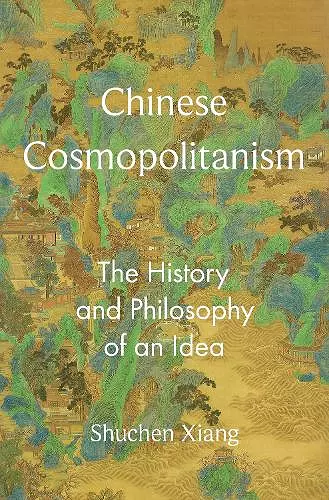Chinese Cosmopolitanism
The History and Philosophy of an Idea
Format:Hardback
Publisher:Princeton University Press
Published:26th Sep '23
Should be back in stock very soon

This book explores China's unique cosmopolitan identity, contrasting it with Western approaches to cultural difference and identity, as seen in Chinese Cosmopolitanism.
In Chinese Cosmopolitanism, Shuchen Xiang presents a compelling argument for a unique Chinese perspective on identity and cultural difference. Unlike the often destructive encounters with diversity seen in the West, which have led to colonization and oppression, Xiang posits that China's historical approach has been one of integration and synthesis. From its early formations to its imperial history, China has embraced a cosmopolitan identity that thrives on the blending of various cultures, creating a rich tapestry of shared experiences rather than division.
Xiang challenges the conventional Western understanding of identity, particularly racial identity, by asserting that 'Chinese' is not defined by common ancestry but by a dynamic amalgamation of cultures. This perspective invites readers to reconsider the implications of applying Western frameworks to non-Western identities, which can lead to misunderstandings. In this context, the author emphasizes the internal and external cosmopolitanism of China, highlighting how it has historically recognized and valued diverse cultures without the need for domination.
By contrasting the Chinese conception of 'harmony' with the Western notion of order, Xiang illustrates how influence is cultivated through mutual respect and acceptance rather than coercion. The insights offered in Chinese Cosmopolitanism are not only relevant for understanding China's past but also provide a fresh lens through which to view contemporary global interactions and the critical discourse surrounding race and identity today.
"Honorable Mention for the Asia and Asian America Section Book Award, American Sociological Association"
"Eye-opening. . . . [Xiang] offers a deeply informed perspective to confront our own often half-understood or misunderstood beliefs about ourselves and others."---Alex Lo, South China Morning Post
"Chinese Cosmopolitanism is compelling in its stringent critique of Western worldviews rooted in racism, colonialism, and Eurocentrism. . . . [A]n illuminating and inspirational book."---Ban Wang, Chinese Studies International
"Provacative. . . . [T]here is still no diminishing the value of what Shuchen Xiang has achieved through Chinese Cosmopolitanism. Given its longstanding knowledge of foreign lands and peoples, many of which were ripe for exploitation, and its recognizable capacity over the ages for imposing its will especially in far-flung places beyond Inner and East Asia militarily whenever it could have elected to, exactly why China chose not to do so is a conundrum. Xiang has isolated and explicated in depth one reason for Chinese restraint that may prove more compelling, determinative, and influential on our understanding of this noninterventionist attitude than any other."---Don J. Wyatt, Journal of Chinese History
"Compelling. . . . Chinese Cosmopolitanism is an illuminating and inspirational book. With vigor and eloquence, Xiang asserts Chinese cosmopolitan visions in sharp contrast with Western worldviews."---Ban Wang, Chinese Studies International
ISBN: 9780691242729
Dimensions: unknown
Weight: unknown
272 pages